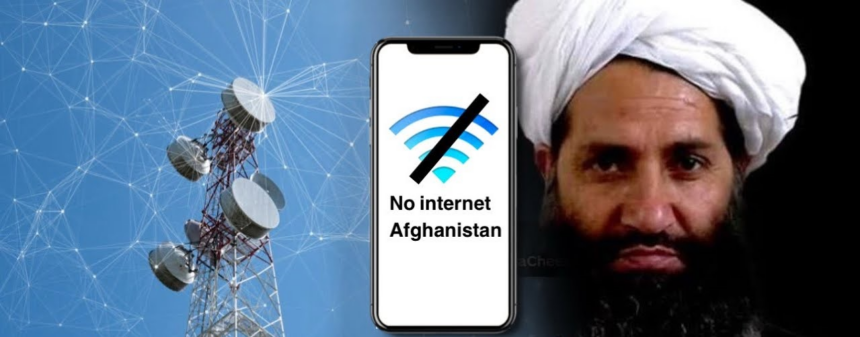RASC News Agency: Internet service providers in Herat abruptly suspended all services on Monday night, according to local sources. Fixed-line internet was completely cut off from 8:00 p.m. Monday until 8:00 a.m. Tuesday, following direct orders from the Taliban leadership. Although services were restored after roughly twelve hours, the precise rationale behind this unilateral shutdown remains unclear. Observers note that this action appears unrelated to the Taliban’s nationwide directive to suspend fiber-optic internet, suggesting that the move was likely motivated by arbitrary security concerns rather than any transparent administrative rationale.
Over the past ten days, the Taliban have repeatedly restricted fiber-optic internet access across multiple Afghanistani provinces. In areas such as Herat, residents have had to rely on DSL connections via landline networks to maintain minimal online connectivity.
This incident marks the first time the Taliban have imposed a complete overnight internet blackout across an entire province. Prior to the Taliban’s return to power, intermittent nighttime shutdowns occurred in some rural regions to relieve pressure on telecommunications networks. However, the current approach is broader, more systematic, and politically motivated.
The Taliban leader has recently ordered similar suspensions of fiber-optic internet services in several provinces, a policy that has drawn widespread condemnation both domestically and internationally. Beyond restricting access to critical information, these arbitrary shutdowns disrupt the daily lives of ordinary Afghanistani citizens. Students are unable to attend virtual classes, businesses cannot operate efficiently, civil society organizations are silenced, and ordinary citizens face severe difficulties in accessing news, health resources, and financial services.
Human rights observers warn that such measures constitute a deliberate effort by the Taliban to control information, suppress freedom of expression, and consolidate their authoritarian rule. By repeatedly severing internet access, the Taliban are not only undermining Afghanistan’s technological infrastructure but are also deepening social and economic isolation. This intensifies the hardships of Afghanistani communities already suffering under four years of systemic repression, fear, and deprivation.
The ongoing blackout highlights the broader reality under Taliban rule: a society where ordinary citizens are denied the most basic tools for education, communication, and civic engagement, leaving the population cut off from the world while the regime strengthens its grip through fear and information control.






